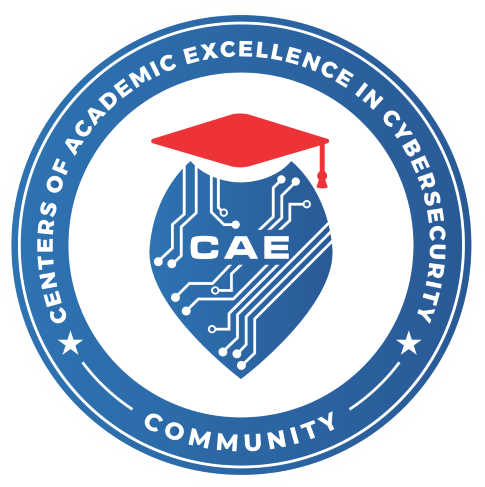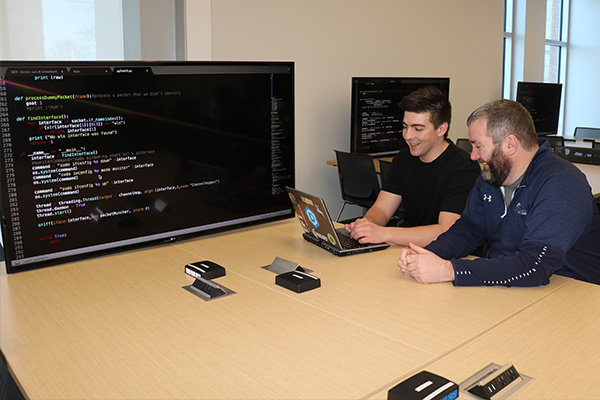Cyber Defense, MS
Program Quick Facts
Credits
30
Start Terms
Fall
|Spring
|Summer
Available
On Campus
|Online
Tuition
$3,365.10
estimated cost per semester
Cybersecurity has become increasingly important, yet there is a shortage of skilled professionals to meet the growing demand. Dakota State University’s Master of Science in Cyber Defense program is designed to help address this gap.
This advanced program provides hands-on experience in key areas such as risk management, intrusion detection, penetration testing, and digital forensics. Students learn how to protect critical systems while upholding essential cybersecurity principles, including confidentiality, integrity, and availability.
Taught by nationally recognized faculty, the program prepares graduates to take on leadership roles in a high-demand field, whether they are advancing their current careers or making a transition. The degree equips students to tackle today’s cyber threats and develop defenses for the future.
Curriculum and experience highlights
Online or on-campus courses
The cyber defense master's program is offered entirely online or on-site in Madison, allowing you to continue advancing your professional career while earning your degree.
Choose your path in cyber defense
Tailor your master's program to your area of interest and career goals. Choose from the technical or security management and compliance specializations:
Technical specialization
The specialization equips students with advanced expertise in areas such as network security, penetration testing, digital forensics, and malware analysis, enabling them to apply specific technological controls to enforce cybersecurity policies and procedures within an organization.
Security management and compliance specialization
The specialization equips students with advanced expertise in managing security operations, ensuring compliance with industry standards for security and privacy, and conducting audits to mitigate risks in today’s complex cybersecurity landscape.
Why choose DSU?

Graduate with recognized excellence
At DSU, we have a recognized excellence in cybersecurity, education, and research— that is central to our mission. The National Security Agency (NSA) has designated our Master of Science in Cyber Defense as a Center of Academic Excellence in Cyber Defense (CAE-CD).
Faculty
Career paths with an MS in cyber defense
Earning a masters in cyber defense opens the door to a wide range of high-demand, high-impact career paths. Graduates are well-prepared to step into cyber roles that are critical in protecting organizations from cyber threats and ensuring the integrity of digital infrastructure. Or continue your education and further your specialization with our cyber defense doctorate. Whether you're aiming to shape national security policy or drive innovation in the private sector, our master's program provides the knowledge and credentials to get you there.
Your future at DSU begins today.
- A bachelor’s degree in computer science, computer engineering, or software engineering (or a closely related field).
- Minimum 3.0 GPA
- If you don’t meet all requirements, you may still be accepted but might need to take foundational courses.
- International applicants must have a degree equivalent to a U.S. four-year degree.
- No GRE is required.
Timelines & requirements
Next steps
Application deadlines
- August 15 (April 15 for international students) for admission the following fall semester
- November 30 (November 1 for international students )for the following spring semester
- April 30 for the following summer semester









